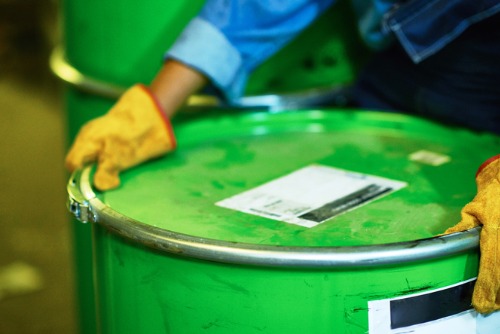Creator of crude oil ETF says differential to WTI works in investors’ favour

Discounted Canadian crude is a huge opportunity for investors despite the sector being beset by problems.
That’s the view of Tim Pickering, CEO of Auspice Capital and creator of the Canadian Crude Index and the Canadian Crude ETF.
He argues that while pipeline struggles and a lack of diversification in its export markets have hit Canadian energy producers’ profits and government revenue at all levels, the deep discount to Western Texas Intermediate (WTI) offers potential upside for investors.
Pickering said that his ETF is the only way to get exposure to Canadian oil without the risks associated with investing in a particular company.
He admitted problem after problem has hindered the industry and uncertainty remains. But the former TD Bank trader and head of Shell’s derivative business said if you’re bullish oil, the numbers work for the “Joe Blow” investor as much as the institutional trader.
He said: “The reason we created the Canadian crude ETF was to give people a choice but they still have to figure out: why should I care about Canadian crude; I thought it was at a big discount? To them, our response is, exactly!”
He explained that if, for example, Canadian crude is trading at $39 at a $29 discount to $68 WTI and they both rally by $10, the best return is obviously on the lowest price asset.
“It’s simple math,” he said. “But up until this ETF was created that trade or investment opportunity was not available to everyday investors, it was only in the world of the shell trader or the BP trader who could actually trade physical barrels of derivatives that were complex. So we created an ETF on it.”
Pickering said that investors’ worried that the differential will widen further should be assured by the fact that if it goes beyond $30, producers stop producing at the same level. He said this has been seen in the past because it doesn’t make economic sense.
He said: “Can it go to $50? Not by my economics and everything I know about the energy business. Could it get to $34? Yeah, temporarily, but then you start seeing shut-ins in Canadian crude.”
Pickering added that Canada’s conservative and modest nature is also hurting the reputation of the crude business in this country. He said the statistic that Canada is the third largest oil reserve – behind Saudi Arabia and Venezuela - is thrown around all the time but that it's wide of the mark and undersells the country’s capability.
“The reality is we are actually the largest oil reserve in the world by modern recovery measures," he said. "What I mean by that is if you use a recovery factor in estimating what that reserve is, it’s more consistent with what our competitors use like Saudi Arabia and Venezuela, who are arguably the biggest. We have more oil in reserve than both of those combined.
“It totally gets overlooked, so why would Canada say we have the third largest reserve and use this recovery factor from 30-plus years ago? It’s just this conservative, modest nature and it’s really not keeping up with what the world is using technologically in terms of describing these reserves.
“The Suncors of this world know this and that’s why guys like Steve Williams (Suncor president and CEO) are saying that this is a reserve that’s going to be around for 100 years – this is the most significant reserve in their world.
“There’s the reality but we have a dark overhang because of pipelines and not being able to get it beyond our one buyer who has got us held hostage.”



